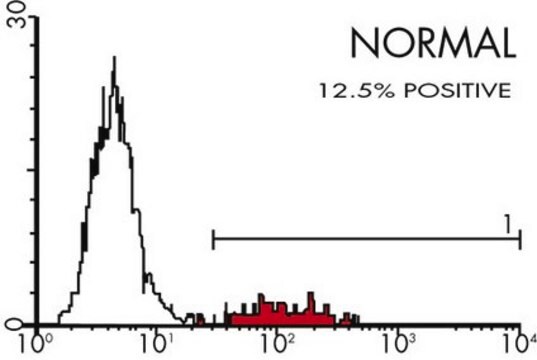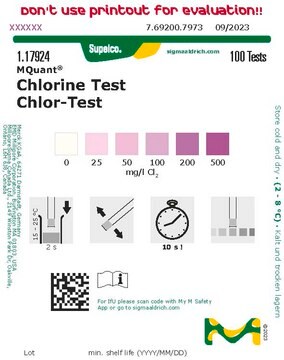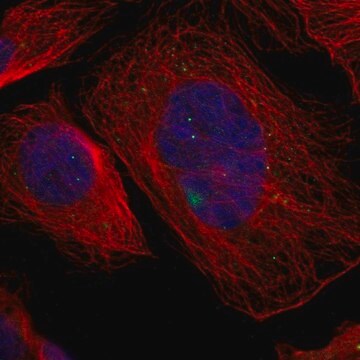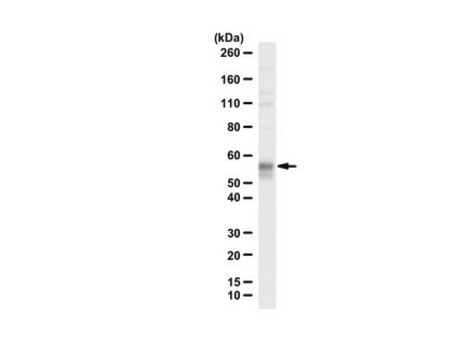WH0007004M1
Monoclonal Anti-TEAD4 antibody produced in mouse
clone 5H3, purified immunoglobulin, buffered aqueous solution
Synonym(e):
Anti-EFTR2, Anti-MGC9014, Anti-RTEF1, Anti-TCF13L1, Anti-TEA domain family member 4, Anti-TEF3, Anti-TEFR1, Anti-hRTEF1B
About This Item
IP
WB
indirect ELISA: suitable
western blot: 1-5 μg/mL
Empfohlene Produkte
Biologische Quelle
mouse
Qualitätsniveau
Konjugat
unconjugated
Antikörperform
purified immunoglobulin
Antikörper-Produkttyp
primary antibodies
Klon
5H3, monoclonal
Form
buffered aqueous solution
Speziesreaktivität
mouse
Methode(n)
immunoprecipitation (IP): suitable
indirect ELISA: suitable
western blot: 1-5 μg/mL
Isotyp
IgG2aκ
GenBank-Hinterlegungsnummer
UniProt-Hinterlegungsnummer
Versandbedingung
dry ice
Lagertemp.
−20°C
Posttranslationale Modifikation Target
unmodified
Angaben zum Gen
human ... TEAD4(7004)
Allgemeine Beschreibung
Immunogen
Sequence
ARGPGRPAVSGFWQGALPGQAGTSHDVKPFSQQTYAVQPPLPLPGFESPAGPAPSPSAPPAPPWQGRSVASSKLWMLEFSAFLEQQQDPDTYNKHLFVHIGQSSPSYSDP
Physikalische Form
Rechtliche Hinweise
Haftungsausschluss
Sie haben nicht das passende Produkt gefunden?
Probieren Sie unser Produkt-Auswahlhilfe. aus.
Lagerklassenschlüssel
10 - Combustible liquids
Flammpunkt (°F)
Not applicable
Flammpunkt (°C)
Not applicable
Persönliche Schutzausrüstung
Eyeshields, Gloves, multi-purpose combination respirator cartridge (US)
Hier finden Sie alle aktuellen Versionen:
Analysenzertifikate (COA)
Die passende Version wird nicht angezeigt?
Wenn Sie eine bestimmte Version benötigen, können Sie anhand der Lot- oder Chargennummer nach einem spezifischen Zertifikat suchen.
Besitzen Sie dieses Produkt bereits?
In der Dokumentenbibliothek finden Sie die Dokumentation zu den Produkten, die Sie kürzlich erworben haben.
Unser Team von Wissenschaftlern verfügt über Erfahrung in allen Forschungsbereichen einschließlich Life Science, Materialwissenschaften, chemischer Synthese, Chromatographie, Analytik und vielen mehr..
Setzen Sie sich mit dem technischen Dienst in Verbindung.
![Tetra-n-butylammoniumhydroxid-Lösung in 2-propanol/methanol for titrations in nonaqueous media c[(C4H9)4NOH] = 0.1 mol/l (0.1 N), Titripur®, reag. USP](/deepweb/assets/sigmaaldrich/product/images/217/795/18cba546-7592-4bb4-8b67-0b4b229e0a2f/640/18cba546-7592-4bb4-8b67-0b4b229e0a2f.jpg)







